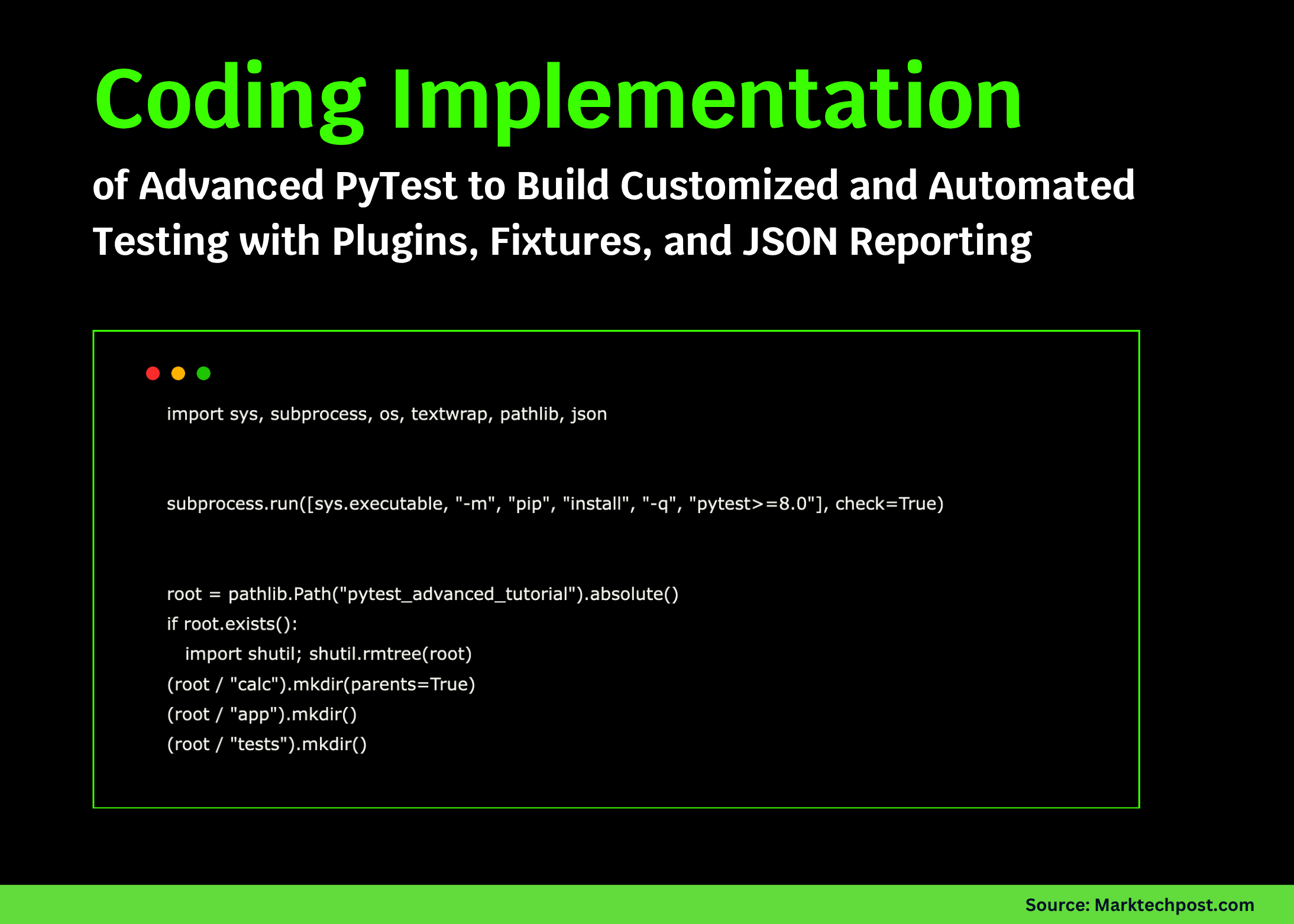
Unlocking the Power of PyTest: Advanced Testing Techniques for Developers
In a recent tutorial by Asif Razzaq, the advanced capabilities of PyTest, a leading testing framework in Python, are thoroughly explored. The tutorial takes readers through the process of building a complete mini-project from scratch, showcasing how to utilize fixtures, markers, plugins, parameterization, and custom configurations.
Transforming PyTest from Simple to Advanced
The focus of the tutorial is on evolving PyTest from just a basic test runner into a robust and extensible system tailored for real-world applications. By the end of the session, participants will not only learn how to write effective tests but also how to customize PyTest’s behavior to suit specific project requirements.
Project Structure and Setup
The tutorial begins with setting up the environment, which includes installing the latest version of PyTest to ensure compatibility. It guides users in creating an organized project structure, encompassing folders for main code, application modules, and tests. This structured approach lays a solid foundation for managing the project effectively.
Key Features Highlighted
- Fixtures: Learn how to set up reusable components for your tests.
- Plugins: Discover ways to extend PyTest functionality with plugins.
- Parameterization: Understand how to run tests with different parameters efficiently.
- Custom Configuration: Gain insights into configuring PyTest to better fit project needs.
This comprehensive tutorial serves as an essential resource for software engineers and developers looking to enhance their testing practices and leverage the full potential of PyTest in their projects.
Rocket Commentary
Asif Razzaq's tutorial on PyTest underscores a pivotal moment for developers: the shift from basic testing frameworks to advanced, customizable solutions that enhance software quality. This evolution is crucial, as the demand for robust testing in AI-driven applications grows. Emphasizing the importance of fixtures, parameterization, and custom configurations, Razzaq highlights how these tools can transform testing into a strategic asset for businesses. However, as we embrace these advanced capabilities, we must also remain vigilant about accessibility; ensuring that all developers, regardless of their experience level, can leverage these technologies ethically and effectively. The implications for the industry are profound: a well-tested AI application can lead to greater user trust and a more innovative tech landscape, but this can only be achieved if we prioritize user-friendly frameworks that democratize access to advanced testing methodologies.
Read the Original Article
This summary was created from the original article. Click below to read the full story from the source.
Read Original Article